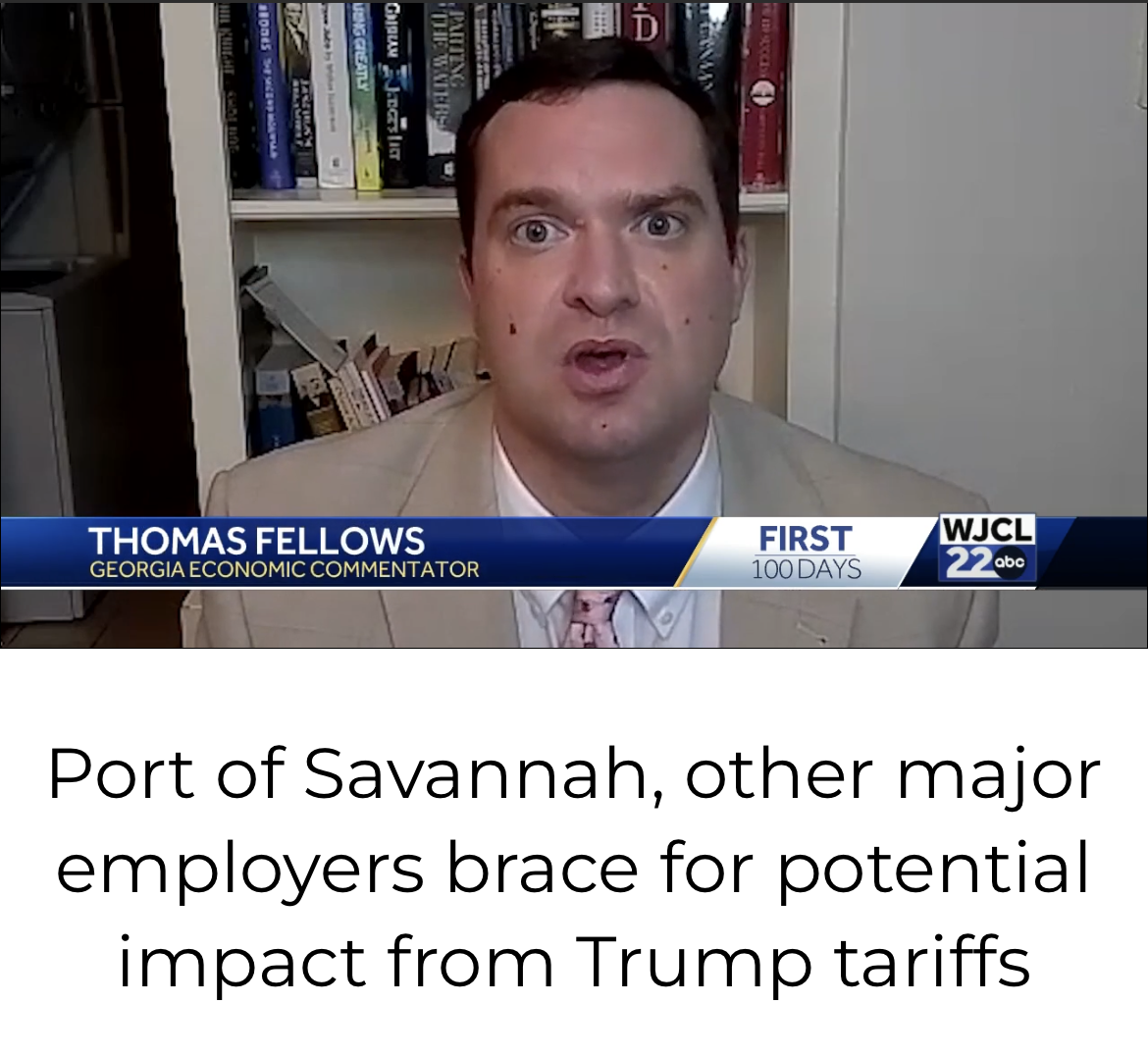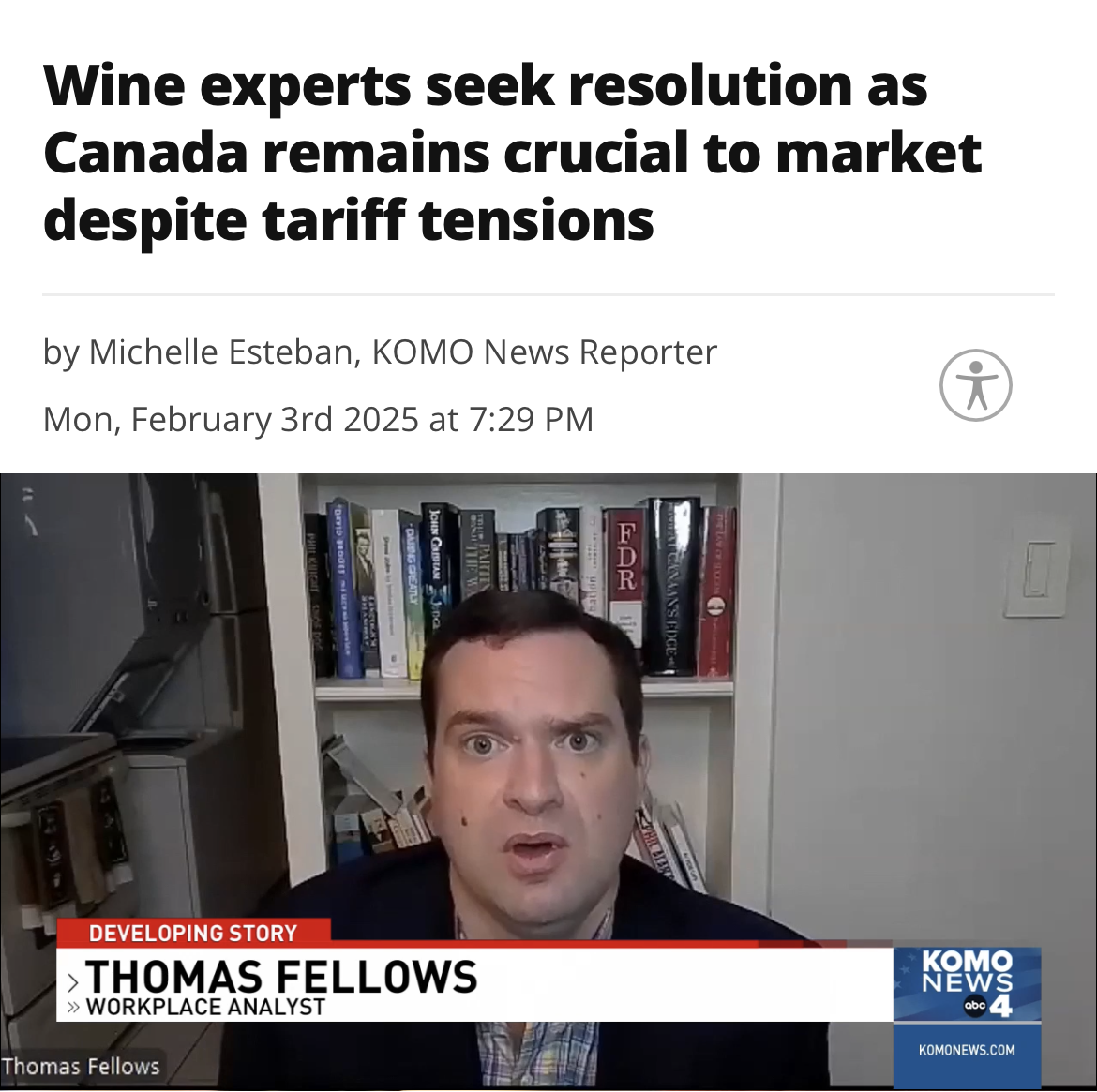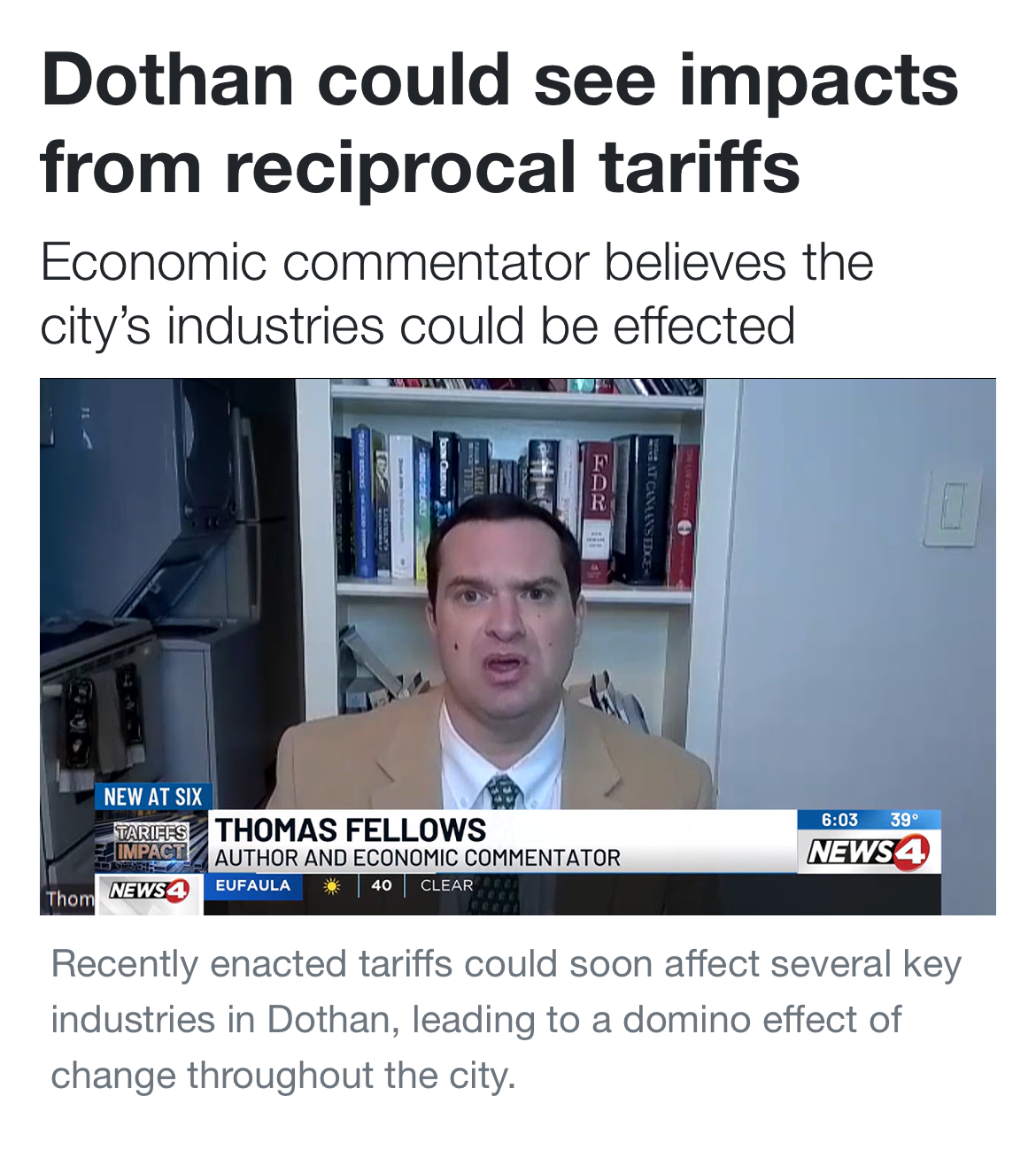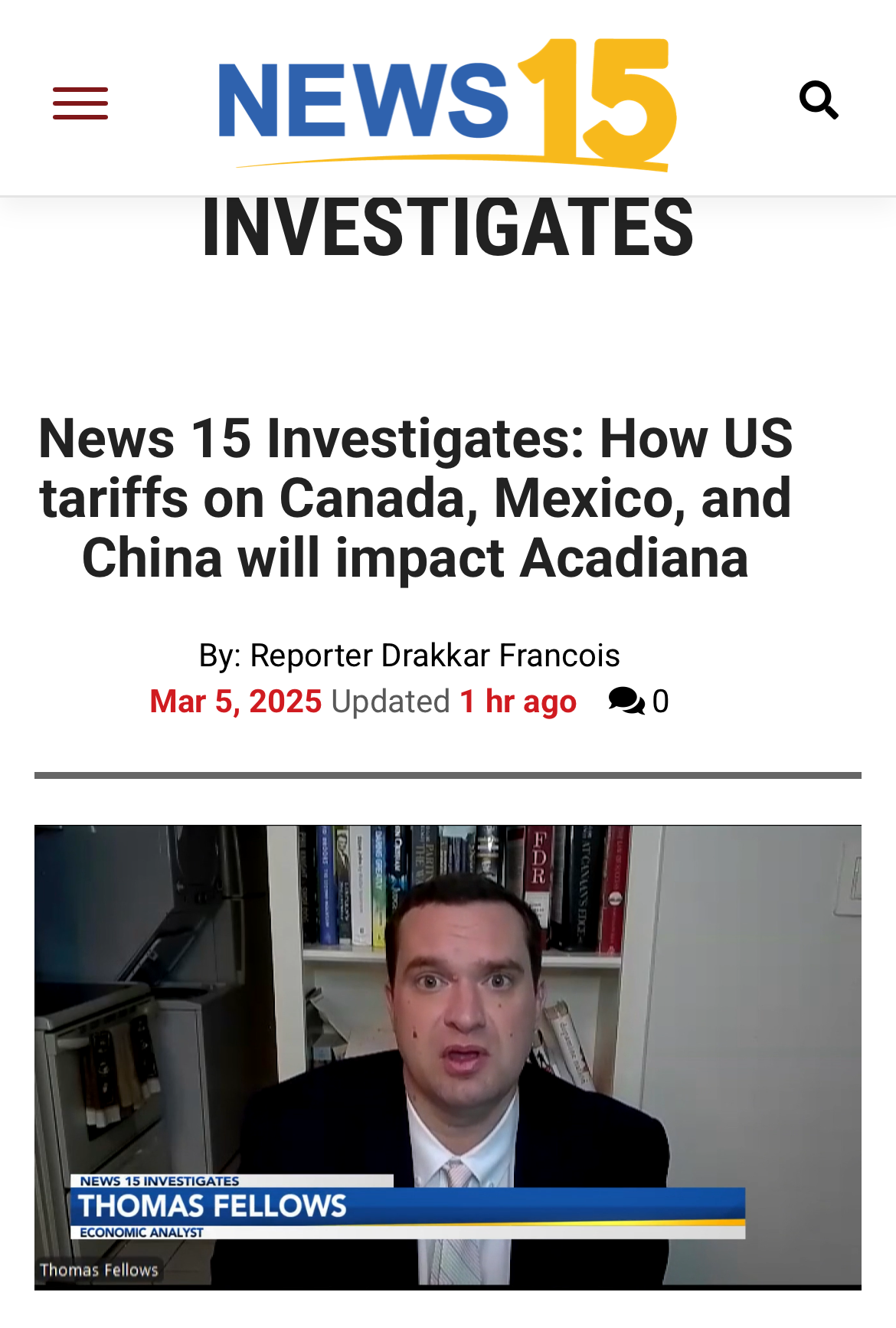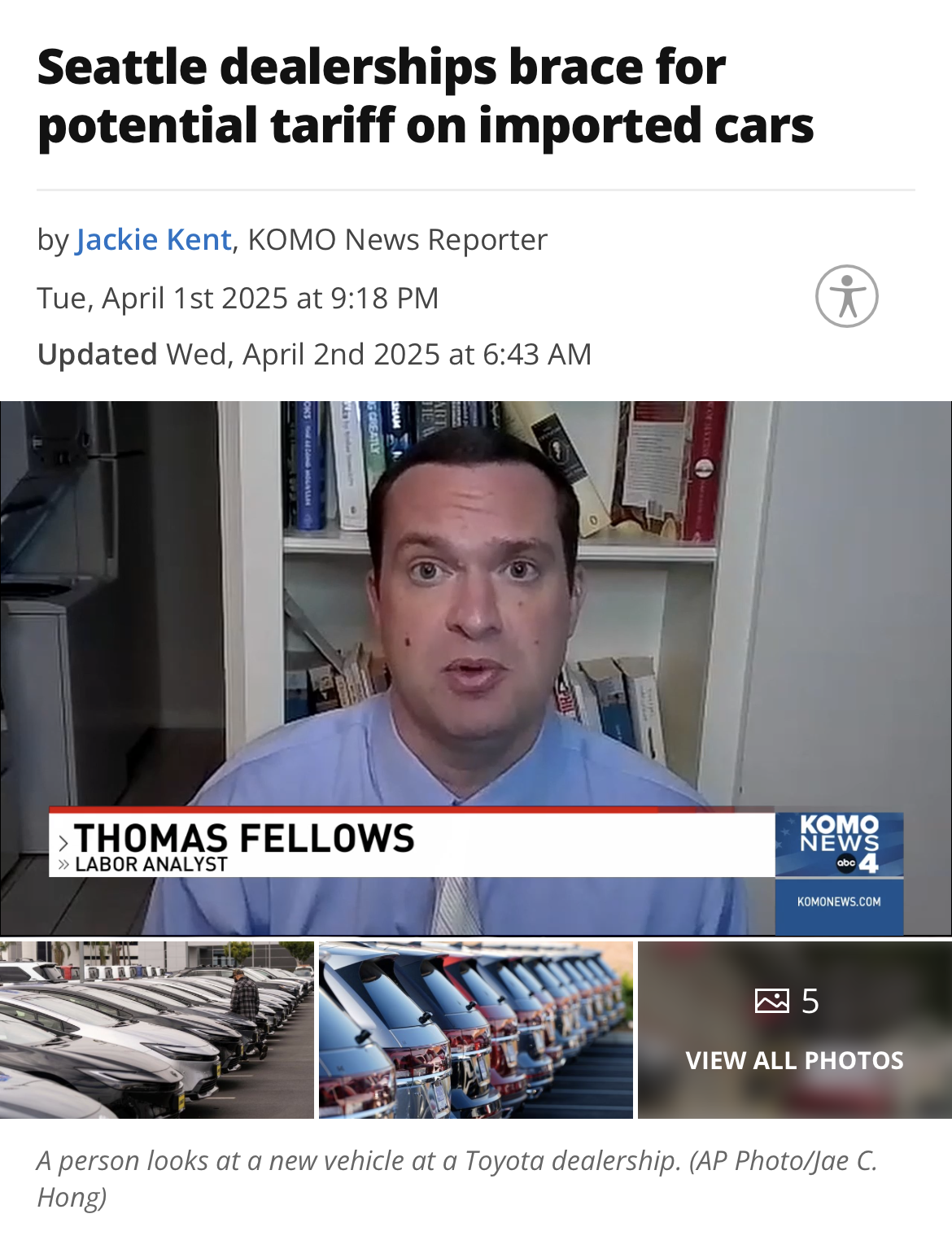From early February to mid-February of 2025, President Donald Trump has initiated significant changes to U.S. trade policy through a series of tariff implementations. On February 1st, 2025, he announced a 25% tariff on all imports from Canada and Mexico, excluding energy products from Canada, which would face a 10% tariff. However, these tariffs were paused for one month following agreements with both countries to enhance border security measures. Subsequently, on February 10th, President Trump expanded tariffs by imposing a 25% duty on all steel and aluminum imports, effective March 12th, 2025, removing previous exemptions for nations such as Canada, Mexico, and the European Union. Further, on February 13th, he signed a memorandum directing the development of “reciprocal tariffs,” aiming to match the import taxes that other countries impose on U.S. products, thereby addressing perceived trade imbalances.
Below are the interviews:
- Local economic expert shares insight on potential tariff impacts - WDEF
- Savannah: Major employers brace for impacts from Trump tariffs
- Wine experts seek resolution as Canada remains crucial to market despite tariff tensions
- Author looks at how tariffs affect US economy | KVEO-TV
- Economic impacts of steel tariffs could raise costs for Wilmington businesses
- US tariffs on China could impact Oklahoma's QuikTrip prices
- Washington florists fear Trump tariff impacts on fresh flower prices. wedding pre-orders
- Gauging the impact of Trump tariffs on the Texoma economy | Business | kten.com
- What will reciprocal tariffs mean for Chattanooga - WDEF
- The cost of protectionism: How tariffs will hurt South Hampton Roads and beyond
- U.S. tariffs could have impact on Mississippians
- A look into President Trump's tariffs
- How Trump's tariffs will continue to affect businesses in New Mexico
- Dothan could see impacts from reciprocal tariffs
- Wichita Falls braces for possible tariff impact
- Federal tariffs may reshape local shopping in North Carolina
- Author: Recent reciprocal tariffs could mirror Smoot-Hawley Act of 1930 | KVEO-TV
- Trump administration tariffs could impact vital Northwest Ohio industries
- Washington builders brace for impact of Trump's tariffs on home construction supplies
- Canada, Mexico tariffs begin on March fourth - WDEF
- Trump administration tariffs could impact vital Northwest Ohio industries
- 'This could cause just a lot of damage': Maine leaders brace for impact of tariffs
- Trump's new tariffs on Canadian, Mexican goods set to hit WA shoppers hard
- Rochester area braces for impact of Trump's tariffs
- How will Indiana be impacted by tariffs?
- Will tariffs affect northwest Ohio consumers? Analysts discuss possible impacts | wtol.com
- News 15 Investigates: How US tariffs on Canada, Mexico, and China will impact Acadiana | News 15 Investigates | kadn.com
- New Tariffs on Mexico and Canada Expected to Impact Central Louisiana Farmers and Families | News | klax-tv.com
- Ontario imposes 25% electricity tariff on US amid trade tensions
- WA dairy farmers weigh impacts of potential Canadian dairy tariffs
- Higher prices potentially on tap for craft breweries amid tariffs
- How Trump tariffs have sent stock market into a downward spiral, says author | KVEO-TV
- Trump administration tariffs affect consumer prices, businesses and stock market | News | klax-tv.com
- Tariffs spark concern over possible Costco panic buying before prices rise
- Acadiana braces for impact of Trump tariffs on imports | Local | kadn.com
- Seattle dealerships brace for potential tariff on imported cars
- Bureau of Labor reports spike in cost of eggs, meat, and poultry
- Tariffs, trade and the trouble with Trump’s steel and aluminum gambit in Hampton Roads | Expert column – The Virginian-Pilot
In a story with CBS Albany, NY describing how Ontario Premier Doug Ford has imposed a 25% tariff on electricity supplied to 1.5 million Americans in response to President Donald Trump's trade policies, Fellows criticized the tariffs, stating, "this obviously undermines global supply chain logic.” He further commented that Fellows further commented, "Trump just doesn't understand Economics and sadly this is [going to] hurt the lower, lower middle and middle class the most because they don't have the discretionary spending to spend more money."


